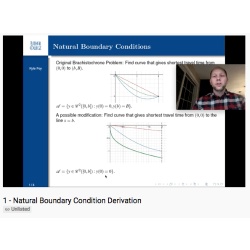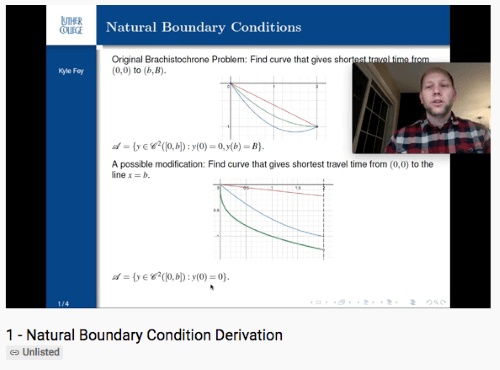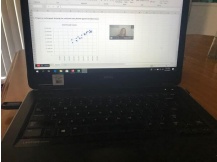
Luther College professors share how they're adjusting to the
In response to the COVID-19 pandemic, colleges and universities around the globe have been forced to quickly transition and adapt to an online-only format, and Luther College is no exception. Luther made the decision to close its doors and go entirely online for the remainder of the spring semester at the end of March.
The shift from in-person classes to a strictly online format affects everyone involved, but it presents especially unique challenges for professors. decorahnews.com reached out to five Luther professors to get their insights into this "new normal" of online instruction, and one thing is resoundingly clear -- Luther professors deeply value the Luther community and dearly miss the personal interaction with their students.
Here's what they had to say about the sudden and unexpected transition to online learning and how it affects their day to day job function:
Professor of biology Scott Carlson:
"The transition has been difficult. Given that most of us have never taught online, we are unfamiliar with the technologies that are available. While we had sessions that showed us different options, we have to determine what works best with our individual teaching styles. One challenge is ensuring that students have access to the internet (not all do) and a reliable connection. Also, student schedules are no longer the same, and they are sharing computers and internet with siblings, so this presents a challenge.
In order to capture both the chalkboard and PowerPoint slides in my lectures I narrate over individual PowerPoint slides, convert them to video, and then upload the video onto a YouTube channel I created. Using a graphics tablet, I can then draw and write notes on the PowerPoint slides as I go, which is great.
Labs present a more significant challenge, as students are not able to have the hands-on exploration that labs normally afford. For my general biology course, students had just designed an experiment and were going to carry it out when everything was cancelled. That meant that we had to generate data for the spectrum of experiments and provide it to students, which they can then analyze and write reports on.
The last challenge has been figuring out how to have face-to-face conversations with students, which is the essence of the liberal arts education. This is probably the part that I miss most - while I can stare at my computer and record a lecture, I really miss the students. I think we would all agree that online educational experiences are not nearly as effective as when students are seated in our classroom, and we are all richer for getting to know them over the semester and in ensuing classes. But we have to accept the uniqueness of this situation, and understand that with it comes an educational experience that cannot be as good as we would like and be okay with that.
There is a steep learning curve for all - faculty and students alike. It is going to take some time to work out the kinks and modify our methods, and I know that this will become better and stronger as we grow through experience."
Associate professor of mathematics Kyle Fey:
"The way I've been teaching online is by creating YouTube videos that students watch to replace the lecture component of the course, then meeting with students through Zoom or Google Hangouts Meet when they have questions. It's been a little crazy to switch to online learning mid-semester, but it's been an adventure, and we're doing what we can to make the most of the situation."
Assistant professor of accounting Brittany Cord:
"I have some experience with online teaching and learning and I think accounting is an easier subject than some to convert to online. That being said, the biggest challenge right now is time. It takes much longer to prep for an online course than an in person course. Typically if you were to teach an online course you would spend weeks or months prior to the launch of the course creating content and then while the course is running you would spend your time facilitating the course with the students. With our limited time frame we now have to do both at the same time, which is difficult.
The thing that has become most apparent to me as I am making this transition is that personal interaction and building community is what we do best at Luther and I am missing those daily interactions with my students already!"
Professor of biology Kirk Larsen:
"It takes way more time to prepare and post lectures and have interactions with students online. There's also the difficulty of internet access from home for both professors and students.
For me, the biggest challenge has been shepherding a faculty hire process that involved a Zoom interview presentation and then making a job offer without ever having the candidate visit Decorah or Luther.
It's also been difficult not having student workers around to help with greenhouse tasks and care for live animals. We are also now having to collect data for the students that they'd normally be collecting on their own in labs, and burn our prairies with a skeleton crew which also requires additional time. Basically we're in survival mode and what needs to get done now is prioritized and everything else gets dropped."
These are strange times for everyone, but as evidenced by the sentiments of these dedicated professors, the Luther faculty is committed to making the best of a difficult situation.
Site designed and maintained by Iroc Web Design Services©.
Your Small Business Web Design Solutions.™



